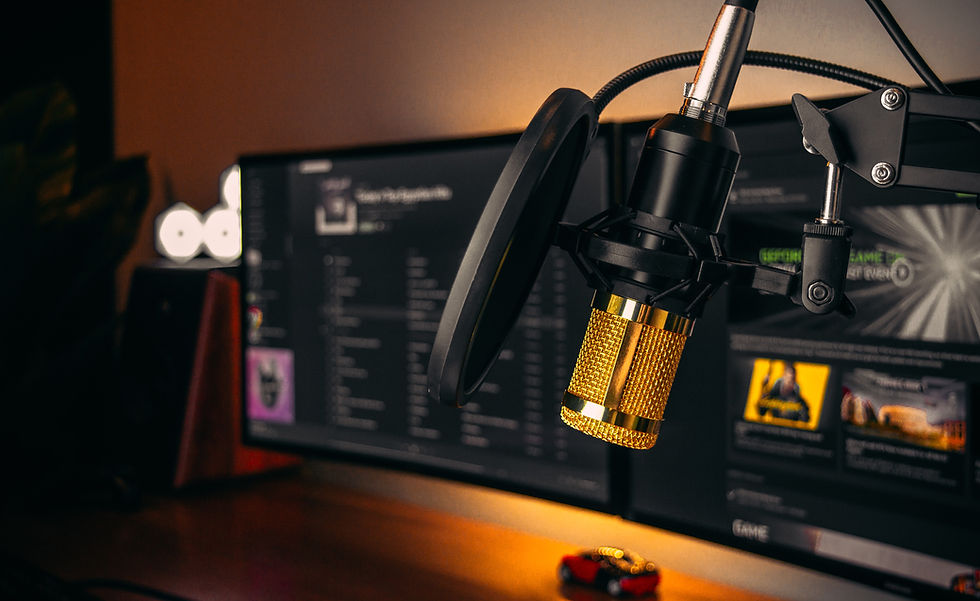Unleash Your Musical Creativity: The Best Music Editing Software and Audio Libraries in 2024
- Scott Coburn
- Mar 17, 2024
- 4 min read
Updated: Mar 24, 2024

Hey there, music maestro! Are you ready to take your musical creations to the next level?
In today's digital age, having the right tools at your disposal can make all the difference. Whether you're a budding musician, a seasoned producer, or simply looking to add some flair to your projects, the world of music editing software and audio libraries offers a plethora of options to explore. Join me as we dive into the best music editing software and audio libraries available in 2024, complete with reviews of each product and their pros and cons.
Best Music Editing Software:
Ableton Live 11: Ableton Live has long been a favorite among electronic music producers and DJs for its intuitive interface and powerful features. With Live 11, Ableton continues to impress with its versatile MIDI and audio editing capabilities, seamless integration with hardware controllers, and a vast library of built-in instruments and effects. Pros: Flexible workflow, robust MIDI editing tools, extensive library of audio effects. Cons: Steep learning curve for beginners, high price point.
FL Studio 20: FL Studio, formerly known as FruityLoops, is a popular choice for both amateur and professional producers alike. Its user-friendly interface, comprehensive selection of virtual instruments and effects, and lifetime free updates make it an attractive option for musicians of all skill levels. Pros: Intuitive interface, powerful pattern-based sequencer, extensive plugin support. Cons: Limited compatibility with macOS, occasional stability issues.
Logic Pro X: Apple's Logic Pro X remains a top contender in the world of music production software, thanks to its sleek design, robust feature set, and seamless integration with other Apple products. From recording and editing to mixing and mastering, Logic Pro X offers everything you need to bring your musical ideas to life. Pros: Professional-grade audio editing tools, expansive library of virtual instruments and loops, seamless integration with macOS and other Apple devices. Cons: Limited availability for Windows users, steep learning curve for beginners.
Pro Tools 2024: Pro Tools has long been the industry standard for professional audio production, and the latest version, Pro Tools 2024, continues to uphold its reputation for excellence. With its unmatched audio editing and mixing capabilities, extensive plugin support, and seamless collaboration features, Pro Tools remains a favorite among audio engineers and producers worldwide. Pros: Industry-standard audio editing tools, robust mixing and mastering capabilities, seamless collaboration features. Cons: High price point, steep learning curve for beginners.
Reaper 6: Reaper may not be as widely known as some of its counterparts, but don't let that fool you—this DAW (Digital Audio Workstation) packs a punch. With its lightweight yet powerful architecture, extensive customization options, and affordable price tag, Reaper is a favorite among budget-conscious musicians and hobbyists. Pros: Lightweight and customizable, extensive plugin support, affordable pricing. Cons: Less intuitive interface compared to other DAWs, lacks some advanced features found in higher-priced options.
Best Audio Libraries for Music and Sound Effects:

Splice: Splice offers a vast library of royalty-free samples, loops, and presets curated by top producers and sound designers from around the world. With its subscription-based model, Splice allows users to access a diverse range of high-quality sounds for a low monthly fee. Pros: Extensive library of high-quality samples, frequent content updates, affordable subscription plans. Cons: Limited selection of live instruments, subscription required for full access.
Native Instruments Komplete: Native Instruments Komplete is a comprehensive collection of virtual instruments, effects, and sound libraries designed to meet the needs of musicians, producers, and sound designers. From orchestral ensembles and synthesizers to drum machines and effects, Komplete offers a wealth of creative tools to inspire your musical projects. Pros: Extensive collection of virtual instruments and effects, high-quality sound libraries, versatile and customizable. Cons: High price point, steep learning curve for beginners.
Spitfire Audio: Spitfire Audio is renowned for its meticulously sampled virtual instruments, which capture the essence of real-world instruments with unparalleled realism and detail. From orchestral strings and brass to pianos, synths, and beyond, Spitfire Audio offers a wide range of premium-quality libraries for composers and producers. Pros: Exceptional sound quality and realism, diverse range of instrument libraries, frequent collaboration with top composers and musicians. Cons: Premium pricing, large file sizes may require significant storage space.
Loopmasters: Loopmasters is a well-established platform offering a vast selection of sample packs, loops, and sound effects across a variety of genres and styles. With contributions from top producers and labels, Loopmasters provides a treasure trove of inspiration for music producers and DJs alike. Pros: Wide range of genres and styles, high-quality samples and loops, frequent discounts and promotions. Cons: Inconsistent quality across some sample packs, occasional copyright issues with third-party content.
Epidemic Sound: Epidemic Sound offers a unique approach to music licensing, providing creators with access to a vast library of royalty-free music tracks and sound effects for a flat monthly fee. With its user-friendly interface and extensive catalog of high-quality content, Epidemic Sound is a popular choice among YouTubers, filmmakers, and content creators. Pros: Royalty-free music tracks and sound effects, user-friendly interface, affordable subscription plans. Cons: Limited customization options, some tracks may require additional licensing for commercial use.
In conclusion: Whether you're a seasoned music producer or just starting out on your musical journey, having the right tools and resources at your disposal is essential for unleashing your creativity and bringing your musical vision to life. With the best music editing software and audio libraries available in 2024, you'll have everything you need to compose, produce, and master your next masterpiece. So, fire up your DAW, browse through some sample packs, and let your imagination run wild—your musical masterpiece awaits!










Comments